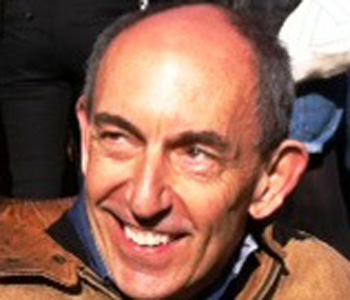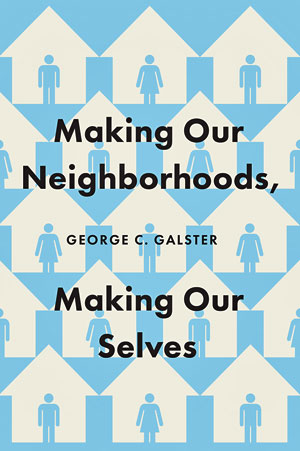
Making Our Neighborhoods, Making Our Selves presents a holistic analysis of the origins, nature, and consequences of neighborhood change and offers strategies for making a more socially desirable palette of neighborhoods in America. The foundational proposition of this book is: we make our neighborhoods and then they make us. That is, our collective actions in metropolitan housing submarkets regarding where we live and invest financially and socially will determine what characteristics our neighborhoods will manifest and how they will evolve. In turn, these multidimensional neighborhood characteristics influence our attitudes, perceptions, behaviors, health, quality of life, financial well-being, children’s development, and families’ opportunities for social advancement. The book advances a model of understanding the causes and effects of neighborhood dynamics through the lens of metropolitan housing market demands and supplies.
Unfortunately, the private, market-oriented decision-makers now governing human and financial resource flows among American neighborhoods usually arrive at inefficient and inequitable outcomes from the perspective of the larger society. Inefficient resource allocations arise due to externalities, strategic gaming, and self-fulfilling prophecies. Externalities are actions by investors that create benefits or costs to their neighbors that they do not consider when deciding whether to undertake the action. For example, homeowners do not consider how under-maintaining their homes harms the values of property owners nearby. Strategic gaming occurs in situations where investors’ payoffs from property improvements depend heavily upon whether neighboring investors undertake similar actions and what these investors will do is uncertain. Few investors will choose to be the first to renovate their dwelling in a deteriorated neighborhood when they worry that no one else will follow suit. Thus, each waits for the other to assume the risk of taking the lead, so no one renovates. Self-fulfilling prophecies occur when people react to an expected neighborhood change in ways that actually encourage that change to occur. For instance, if whites anticipate that their home values will fall if many nonwhites move into the neighborhood and react by trying to sell their properties at discounts, they will create the very situation they feared. These various forms of market failure systematically produce too-little housing investment in many places and too much segregation by race and income. This means that the current characteristics of neighborhoods are inefficient form a society-wide perspective.
Moreover, lower-income, black and Hispanic households and property owners typically bear a disproportionate share of the costs associated with under-investment, segregation and neighborhood transition processes, while reaping comparatively little of their benefits. Because neighborhood context powerfully affects children, youth and adults—yet neighborhood contexts are extremely unequal across economic and racial groups—space becomes a way of perpetuating unequal opportunities for social advancement. This means that neighborhoods are inequitable form a society-wide perspective.
To remedy these substantial market failures to provide efficient and equitable neighborhoods, I provide a comprehensive set of neighborhood-supportive public policies and programs in the domains of physical quality, economic diversity, and racial diversity. These initiatives should be guided by the principle of strategic targeting. This means that the public sector must use its scarce resources in a spatially focused, concentrated way such that it leverages substantial private investment and encourages households and investors to pursue the same ends as the policy.
Urban theorists have tried for generations to define exactly what a neighborhood is. But behind that daunting existential question lies a much murkier problem: how do you make neighborhoods productive and fair for their residents? In Making Our Neighborhoods, Making Our Selves, I delve deeply into the question of whether American neighborhoods are as efficient and equitable as they could be—socially and financially—and, if not, what we can do to change that. I aim to redefine the relationship between places and people, promoting specific policies at the local, state, and federal levels that reduce inequalities in opportunity associated with neighborhood inequalities.
Though I was trained in economics, I realized early in my career that to understand neighborhoods thoroughly, one needed to also draw upon insights from sociology, geography, and psychology. Making Our Neighborhoods, Making Our Selves is my attempt to synthesize a lifetime of thinking about this issue in a holistic way. My goal is to deliver a clear-sighted explanation of what neighborhoods are, how they come to be, why they change—and what they should be.
The first few pages of the first chapter explain why Making Our Neighborhoods, Making Our Selves provides an important, new way of looking at neighborhoods that transcends the narrow perspectives of previous books on the subject.
The last page of the conclusion provides a rousing challenge. It argues why on normative grounds Americans should pursue the directions advanced in this book if we are to be serious about moving toward a more just society.
Understanding how we make our neighborhoods and then they make us in turn, forces us to ask a critical normative question. Do our human-made neighborhoods make all of us equally? Sadly, the answer is a resounding “no.” Savage inequalities embedded in our neighborhoods, most critically manifested as low-quality environments segregated by economic and racial status, expose the fiction in our cherished notion of “equal opportunity in America.” We must intervene strategically in the market-driven processes governing flows of resources across metropolitan space if as a society we want to affirm our better selves and restore “equal opportunity” to its rightful place as a hallowed premise, instead of a hollow promise.


George Galster earned his Ph.D. in Economics from M.I.T. and recently retired as Clarence Hilberry Professor of Urban Affairs and Distinguished Professor at Wayne State University in Detroit. He has published over 165 peer-reviewed articles, 9 books, and 39 book chapters on a wide range of urban-related topics. The Urban Affairs Association placed him on their “Service Honor Roll” in 2014 and awarded him the prestigious “Contributions to the Field of Urban Affairs” prize in 2016.